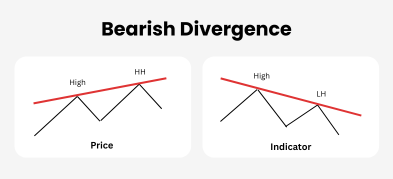Important Information
This website is managed by Ultima Markets’ international entities, and it’s important to emphasise that they are not subject to regulation by the FCA in the UK. Therefore, you must understand that you will not have the FCA’s protection when investing through this website – for example:
- You will not be guaranteed Negative Balance Protection
- You will not be protected by FCA’s leverage restrictions
- You will not have the right to settle disputes via the Financial Ombudsman Service (FOS)
- You will not be protected by Financial Services Compensation Scheme (FSCS)
- Any monies deposited will not be afforded the protection required under the FCA Client Assets Sourcebook. The level of protection for your funds will be determined by the regulations of the relevant local regulator.
Note: Ultima Markets is currently developing a dedicated website for UK clients and expects to onboard UK clients under FCA regulations in 2026.
If you would like to proceed and visit this website, you acknowledge and confirm the following:
- 1.The website is owned by Ultima Markets’ international entities and not by Ultima Markets UK Ltd, which is regulated by the FCA.
- 2.Ultima Markets Limited, or any of the Ultima Markets international entities, are neither based in the UK nor licensed by the FCA.
- 3.You are accessing the website at your own initiative and have not been solicited by Ultima Markets Limited in any way.
- 4.Investing through this website does not grant you the protections provided by the FCA.
- 5.Should you choose to invest through this website or with any of the international Ultima Markets entities, you will be subject to the rules and regulations of the relevant international regulatory authorities, not the FCA.
Ultima Markets wants to make it clear that we are duly licensed and authorised to offer the services and financial derivative products listed on our website. Individuals accessing this website and registering a trading account do so entirely of their own volition and without prior solicitation.
By confirming your decision to proceed with entering the website, you hereby affirm that this decision was solely initiated by you, and no solicitation has been made by any Ultima Markets entity.
I confirm my intention to proceed and enter this websiteAround 42,000 UK financial businesses sit under the Financial Conduct Authority’s eye. In 2024 alone, the regulator issued 2,240 public alerts about unauthorised firms and directed almost 20,000 misleading or otherwise non-compliant promotions to be amended or withdrawn.
The FCA regulates the financial services industry in the UK with objectives of upholding the integrity of the UK’s market and protecting market participants. It has authority to set rules and guidance, authorise firms and individuals before they operate, supervise conduct, and run market studies to monitor market conduct, detect wrongdoings and take other steps to ensure fairness and transparency in the market.
It follows a proportionate, risk-based approach, focusing attention where potential harm is highest and uses data to identify and act on problems faster. In 2024/25, the FCA reported a 121% increase in the number of cancelled authorisations over the previous three years, demonstrating the FCA’s dedication and determination to eliminate wrongful conduct from the market and to improve consumer protection against financial fraud.
Understanding the FCA’s Role
But what exactly is the FCA? The Financial Conduct Authority is the UK’s independent regulatory body for the financial services industry. Its primary and strategic objective is to ensure the proper operation of the UK’s financial services industry. To get there, it pursues three operational objectives: protect consumers, enhance market integrity, and promote competition. In practice, those objectives are designed so that market participants receive clear information, the markets remain clean, and firms compete on fair terms rather than shortcuts.
The FCA has become synonymous with stability and trust in the UK’s financial sector. As one of the world’s leading financial hubs, the UK has long relied on the FCA to set high regulatory standards and take appropriate enforcement actions accordingly. This regulatory framework serves to uphold market confidence while signifying the UK’s commitment to fostering a secure and transparent trading environment. For UK traders, this means greater confidence that their funds are safeguarded and their brokers are held to account, especially when trading online.
What Can Clients Expect
- Clarity on Funds
Under FCA rules, information is presented in plain language so users can see fees, charges, funding and withdrawal steps, and key risks without wading through fine print. The aim is straightforward decision‑making before any money moves.
- Fair and Balanced Communications
Marketing and product messages are expected to show benefits and risks side by side. Standard risk wording accompanies higher‑risk products so investors aren’t surprised later.
- Timely and Transparent Updates
When terms, features, or important policies change, users should be told clearly and in good time. The focus is on advance notice rather than after‑the‑fact surprises that could affect how funds are used.
- Consistency of Information
Core details, such as the legal entity name, key disclosures, and other essential facts, are meant to match across the website, app, emails, and other channels. That consistency helps investors know exactly who holds their accounts and on what basis.
How to Check if Your Broker is FCA-Regulated
- Look it up on the FCA Financial Services Register
Users can search by the firm’s legal name or Firm Reference Number (FRN) and confirm the status shown on the Register before proceeding.
- Scan the site/app for balanced risk information and key policies
FCA rules require promotions and communications to be fair, clear, and not misleading, including on their website, social media and mobile application. Investors should see visible risk warnings and/or disclosures.
- Sanity-check small details
Typos in the company name, mismatched addresses, or a domain that doesn’t align with the Register entry are red flags. When in doubt, contact the firm using the Register’s details to confirm authenticity.
Other Risks
Whilst investors may take greater comfort in dealing with FCA-licensed firms, knowing that FCA regulations are in place to provide oversight, they should remain mindful that trading still carries limitations and risks.
Not a profit guarantee
Being FCA-regulated does not insulate users from loss. The FCA bans promotions that promise outcomes and requires all communications to be clear, quite the opposite of “guaranteed returns.” In other words, regulation sets standards for honesty but it doesn’t deliver profits.
Not a shield from market risk
Leveraged products can move quickly against a position. The FCA’s own rules and policy statements require prominent risk warnings for contracts for difference (CFDs), noting that these instruments are complex and carry a high risk of rapid losses due to leverage. Therefore, while regulations help ensure those risks are obviously spelled out, the risks are not eliminated.
Not an endorsement or seal of approval
Appearing on the Financial Services Register or being registered under other FCA regimes is not a recommendation. The FCA explicitly warns firms not to imply a seal of approval, and even note that registration is not an endorsement of a business or its products. Users should treat regulation as confirmation that rules apply and not as a quality badge.
Ultima Markets is FCA-Licensed
As a broker regulated by the Financial Conduct Authority, Ultima Markets UK Ltd’s status and licence are available for verification on the FCA Financial Services Register.
Ultima Markets is currently developing a dedicated website for UK clients and expects to onboard UK clients under FCA regulations in 2026.
FCA regulation is more than just a badge of prestige. The real takeaway is that it is the foundation that keeps funds safe, information consistent, and risks clearly disclosed. While it cannot guarantee profits or shield against market volatility, it does set a higher baseline of trust. By choosing an FCA-licensed firm, investors can place their trust in an institution bound by rigorous standards designed to provide safeguards for their interests.
Disclaimer: This content is provided for informational purposes only and does not constitute, and should not be construed as, financial, investment, or other professional advice. No statement or opinion contained here in should be considered a recommendation by Ultima Markets or the author regarding any specific investment product, strategy, or transaction. Readers are advised not to rely solely on this material when making investment decisions and should seek independent advice where appropriate.












